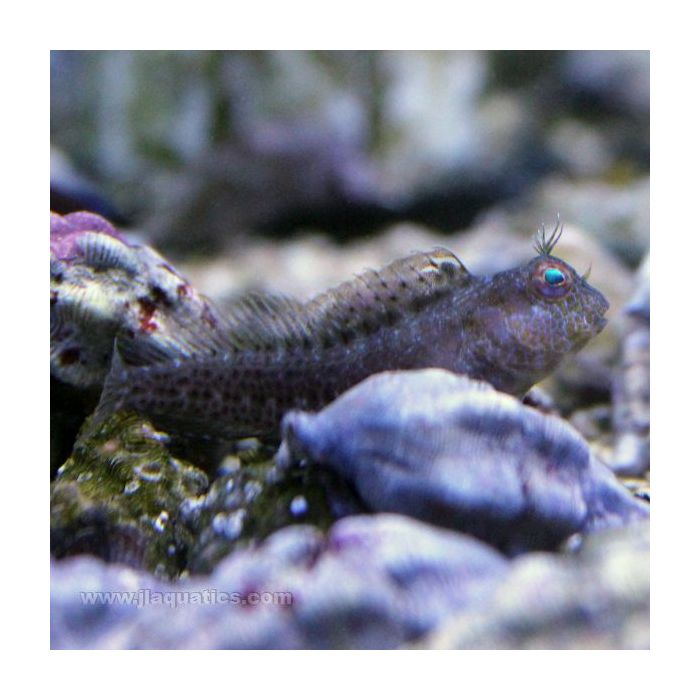Molly Miller Blenny (Atlantic)
Blennies are diminutive fish typically with elongated bodies, and as such we do not recommend any aggressive or large-mouthed fish to be kept with them; this includes all groupers, snappers, sweetlips, soapfish, lionfish, eels, goatfish, anglers/frogfish, leaf fish, and any other fish who may eat them.
The Molly Miller blenny is a rare import from the Caribbean. Its body may be various shades of olive green, earthy brown, slate grey and rusty red arranged in spots and stripes. When sitting still it camouflages into the rockwork, but soon enough it will move to a new location and begin its busy foraging activities. Above its eyes are fuzzy eyebrows which give it a fun and unique look. As it matures it also develops cirri along the nape of its neck, which is its distinguishing feature. Males and females are nearly identical; males may grow larger, have darker color, and feature larger cirri. It grows up to 4.5 inches.
The Molly Miller blenny spends most of its time perched on rocks, always alert and watching its environment. As a juvenile it prefers meaty foods, but will favor algae as an adult. It uses its large lips to rasp away at the rock work, eating detritus and algae. There have been reports of the Molly Miller blenny consuming Aiptasia and cyanobacteria. It is typically reef safe and does not usually bother corals.
Diet should include plenty of marine algae and Spirulina, frozen Mysis shrimp, and other high quality meaty items. It is preferable to feed more than once a day. We recommend a mature aquarium of at least 30 gallons or larger for a single individual. Live algae is an important source of food, and should be growing in the aquarium before the blenny is introduced. Algae grazing blennies may be especially aggressive towards similar species, and are best kept one species per aquarium. If several Molly Miller blennies are to be kept together the aquarium should be of sufficient size, contain many hiding places, and all specimens should be added at the same time.
















